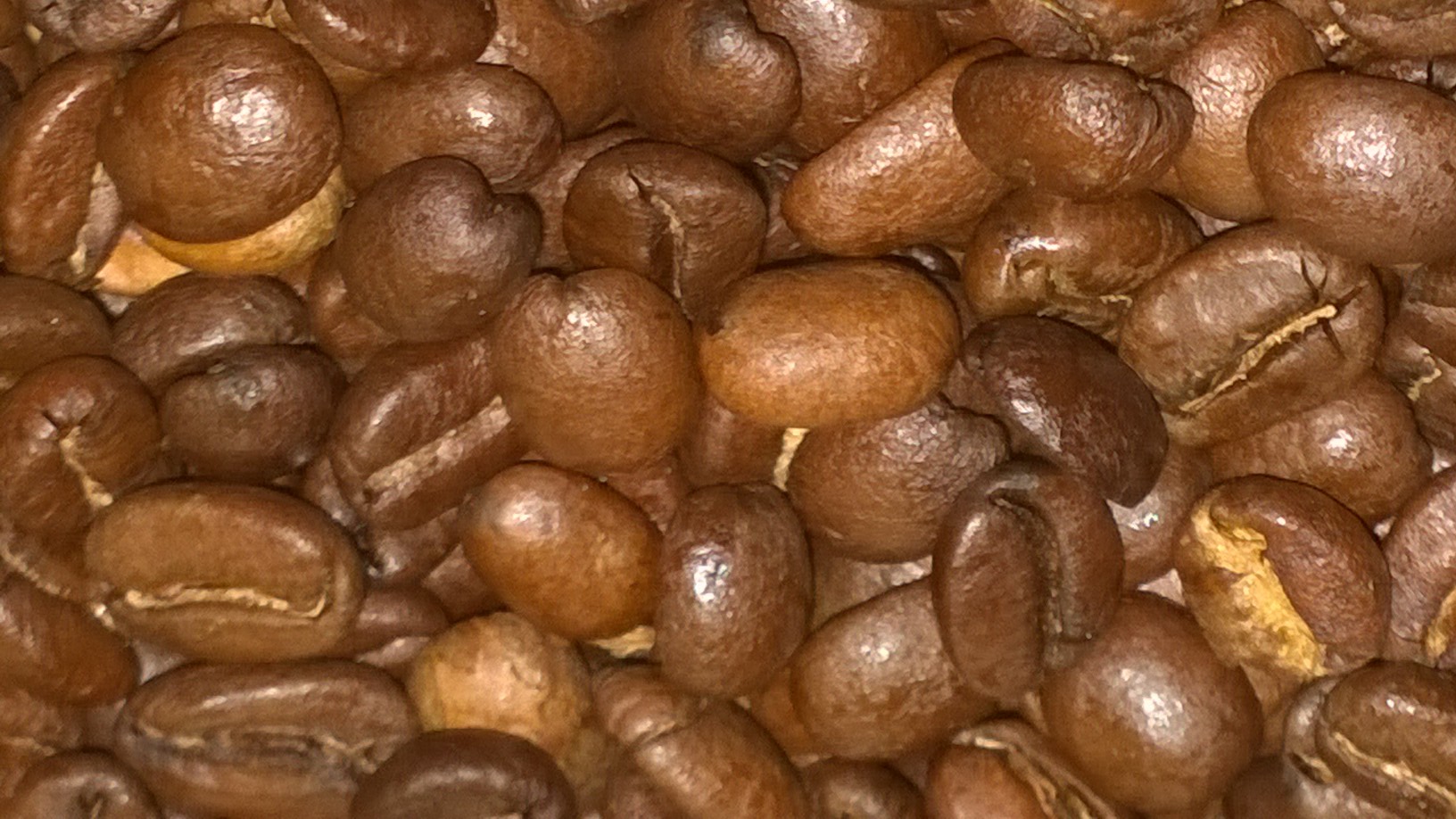This coffee can be roasted at any level. Almost Gone!! Happy Roasting, Chris
There are many types of coffees in the world and the main species are Arabica and Robusta. Arabica is a high quality, mild coffee much favored for blending.
Kenyan Arabica is grown on rich volcanic soils found in the highlands between 1400 to 2000 meters above sea level. It is an established fact the finest Arabic coffee in the world is grown in Kenya.
The climate is never hotter than an European summer and never cooler than the best kind of European spring with a temperature range of not more than 19C (35F). Rainfall is well distributed throughout the year where coffee is grown with an annual precipitation not less that 1000 mm (35”) and deep well-drained red loam soils. These conditions make most of the districts in Kenya where coffee is grown unique in the world. There are broad, gently rounded ridges, sloping not too steeply into valleys which run swift perennial streams. The red volcanic soil is of great depth and fertility on the slopes ensuring good drainage.Coffee production goes through a systematic protocol from seed to cup from nursery, farm, pulping, milling and grading. Attention to detail guarantees that the consumer only gets the best of Kenya coffee has been grown for over a century now, since 1893 when it was first introduced in Kenya. The total area under coffee is estimated at 160,000 hectares, about one third of which is the plantation sector and the rests under small holder sector with an estimated 700,000 growers.
Almost all Kenyan coffee is processed by a wet method in order to ensure the best quality. Growers pick only the red-ripe cherry. At the factory, the cherries are sorted before processing and unripe, overripe or diseased cherries removed. The cherries are then pulped to remove the outer skin.
Home > Shop > Green Coffee Beans > Green Coffee beans Kenya Thangathi AB 1 pound
Sale!WP_20150317_010
WP_20150317_010
Green Coffee beans Kenya Thangathi AB 1 pound
$8.00 $7.00
40 in stock
1
Add to cart
SKU: 812b4ba287f5 Category: Green Coffee Beans
Description Additional Information
There are many types of coffees in the world and the main species are Arabica and Robusta. Arabica is a high quality, mild coffee much favored for blending.
Kenyan Arabica is grown on rich volcanic soils found in the highlands between 1400 to 2000 meters above sea level. It is an established fact the finest Arabic coffee in the world is grown in Kenya.
The climate is never hotter than an European summer and never cooler than the best kind of European spring with a temperature range of not more than 19C (35F). Rainfall is well distributed throughout the year where coffee is grown with an annual precipitation not less that 1000 mm (35”) and deep well-drained red loam soils. These conditions make most of the districts in Kenya where coffee is grown unique in the world. There are broad, gently rounded ridges, sloping not too steeply into valleys which run swift perennial streams. The red volcanic soil is of great depth and fertility on the slopes ensuring good drainage.Coffee production goes through a systematic protocol from seed to cup from nursery, farm, pulping, milling and grading. Attention to detail guarantees that the consumer only gets the best of Kenya coffee has been grown for over a century now, since 1893 when it was first introduced in Kenya. The total area under coffee is estimated at 160,000 hectares, about one third of which is the plantation sector and the rests under small holder sector with an estimated 700,000 growers.
Almost all Kenyan coffee is processed by a wet method in order to ensure the best quality. Growers pick only the red-ripe cherry. At the factory, the cherries are sorted before processing and unripe, overripe or diseased cherries removed. The cherries are then pulped to remove the outer skin.
The slimy sugary coating (mucilage) – which remain on the beans is removed through fermentation process. Fermentation of parchment should be completed within 36 hours.
The parchment is now ready for sun drying on drying tables where it is regularly turned to obtain the bluish colour for which Kenya coffee is famous.
Drying the coffee is the lat process on the farm. When it is fully dried the coffee is bagged and ready to be sent to the mills.
A rich, complex coffee that softly opens with notes of dark berries and undertones of bitter sweet chocolate. Finishes with a medium acidity that complements the slight wineyness and citrus notes.

